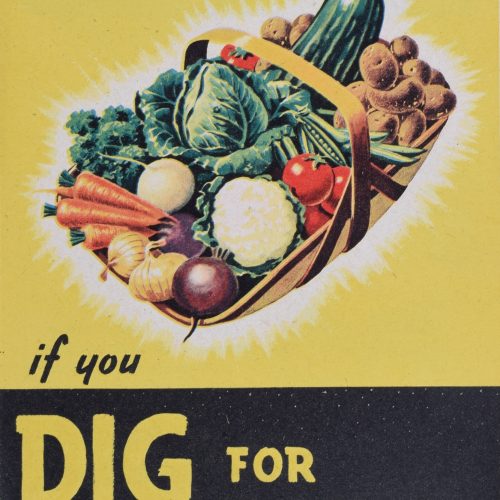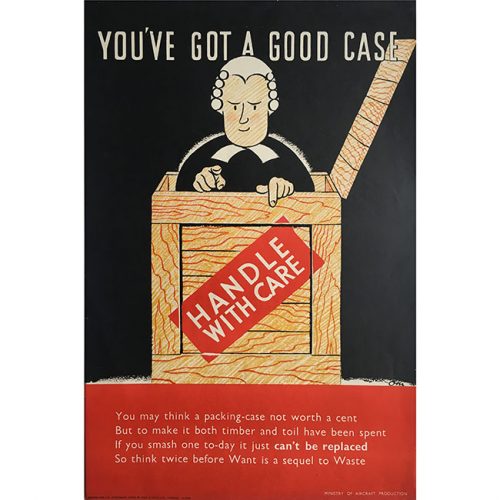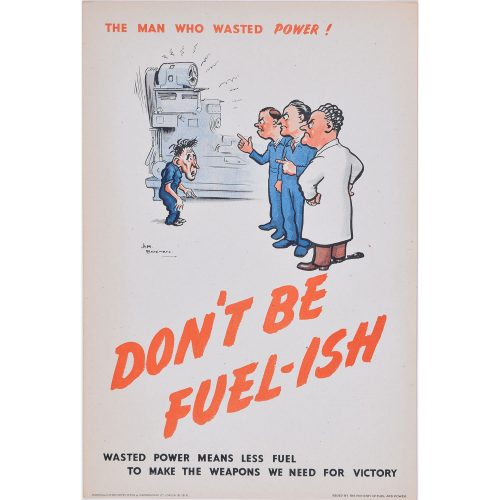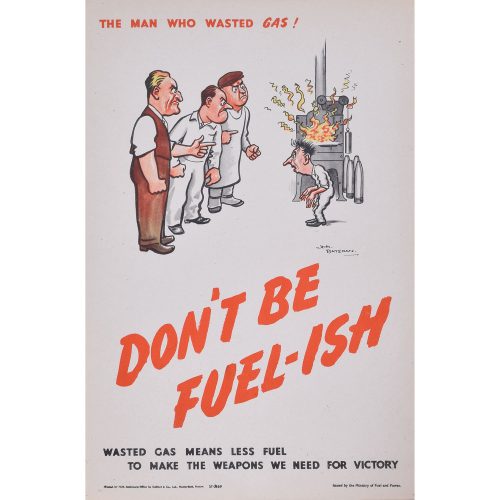Nat Harrison
Accidents Sometimes Happen… Work Carefully Avoid Scrap
Original poster c. 1943
Printed for HMSO by J Weiner Ltd, London for the Ministry of Aircraft Production
Produced by the Bayly-Souster advertising agency, Fleet Street
Provenance the estate of Ernest Bendell-Bayly
The waste-not-want-not campaign of World War 2 in the UK had to tackle waste at all levels. Here workers in aircraft factories are encouraged to work carefully in order to avoid creating products that had to be scrapped. Not only were the raw materials scrapped, but also the valuable hours of workers’ time involved.
When Lord Beaverbrook commenced his term as Minister of Aircraft Production in May 1940 it was an industry beset with problems. Aircraft parts were produced in sufficient numbers, but assembly into flyable aircraft proved more challenging – the Castle Bromwich Spitfire factory had not produced a single completed aircraft by this point. Moreover the RAF central depots had large supplies of aircraft that had not been issued to squadrons. Once this was all brought under Beaverbrook’s control, aircraft production increased rapidly. During the Battle of Britain, the British production of fighter aircraft was two-and-a-half times that of Germany. Britain had 644 operable fighters at the start of July 1940 – when the Battle of Britain began – against the German 725. By the end of October 1940, when the German offensive finished, British fighter aircraft had – despite significant losses – increased to 732 whilst the Germans were left with just 275.
To achieve this great productivity increase the Ministry was run on informal grounds; few notes were kept; staff members had few formal roles. Essential to the success were motivational posters in the aircraft factories.
If you are interested email info@manningfineart.co.uk or call us on 07929 749056.





